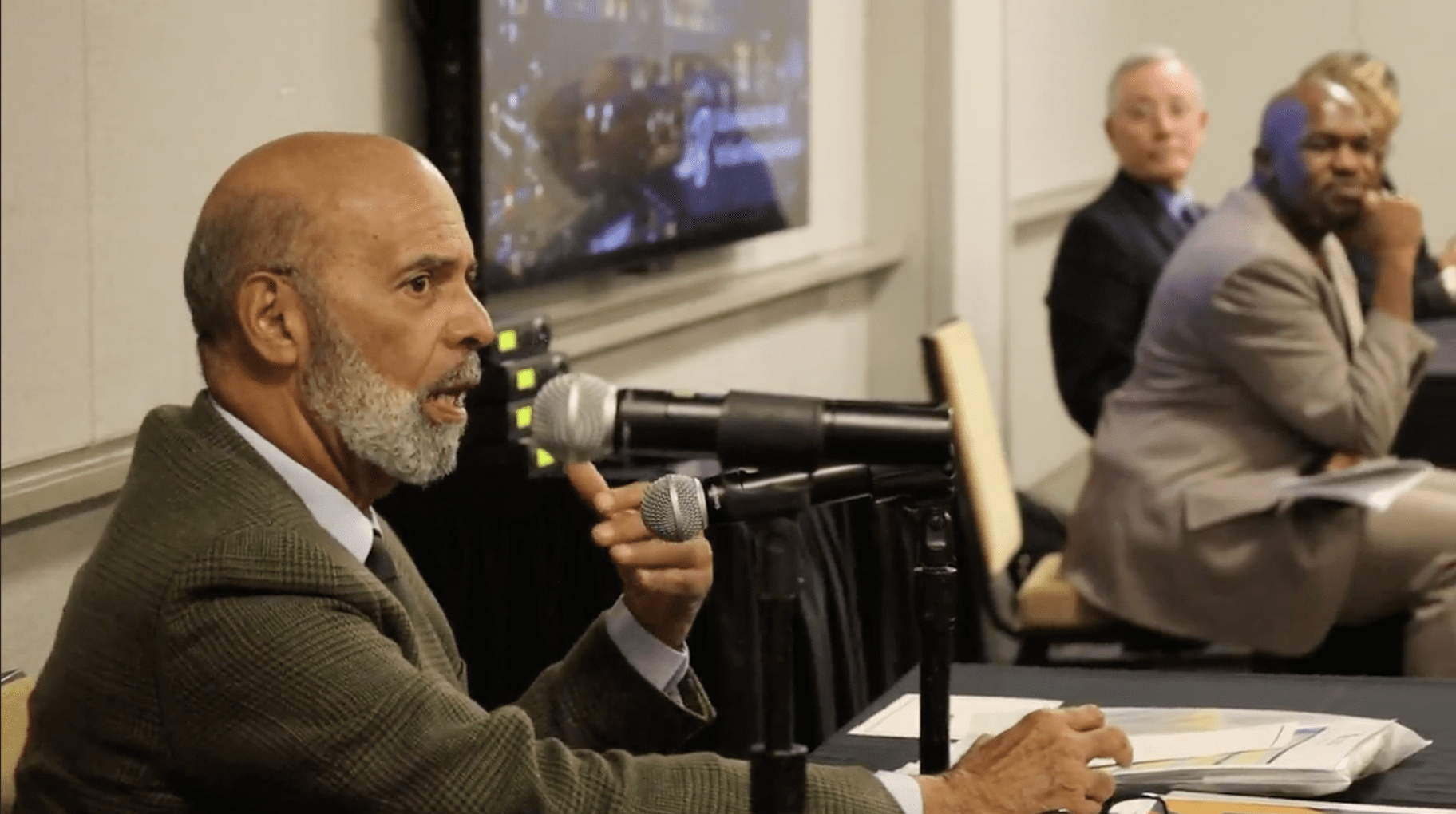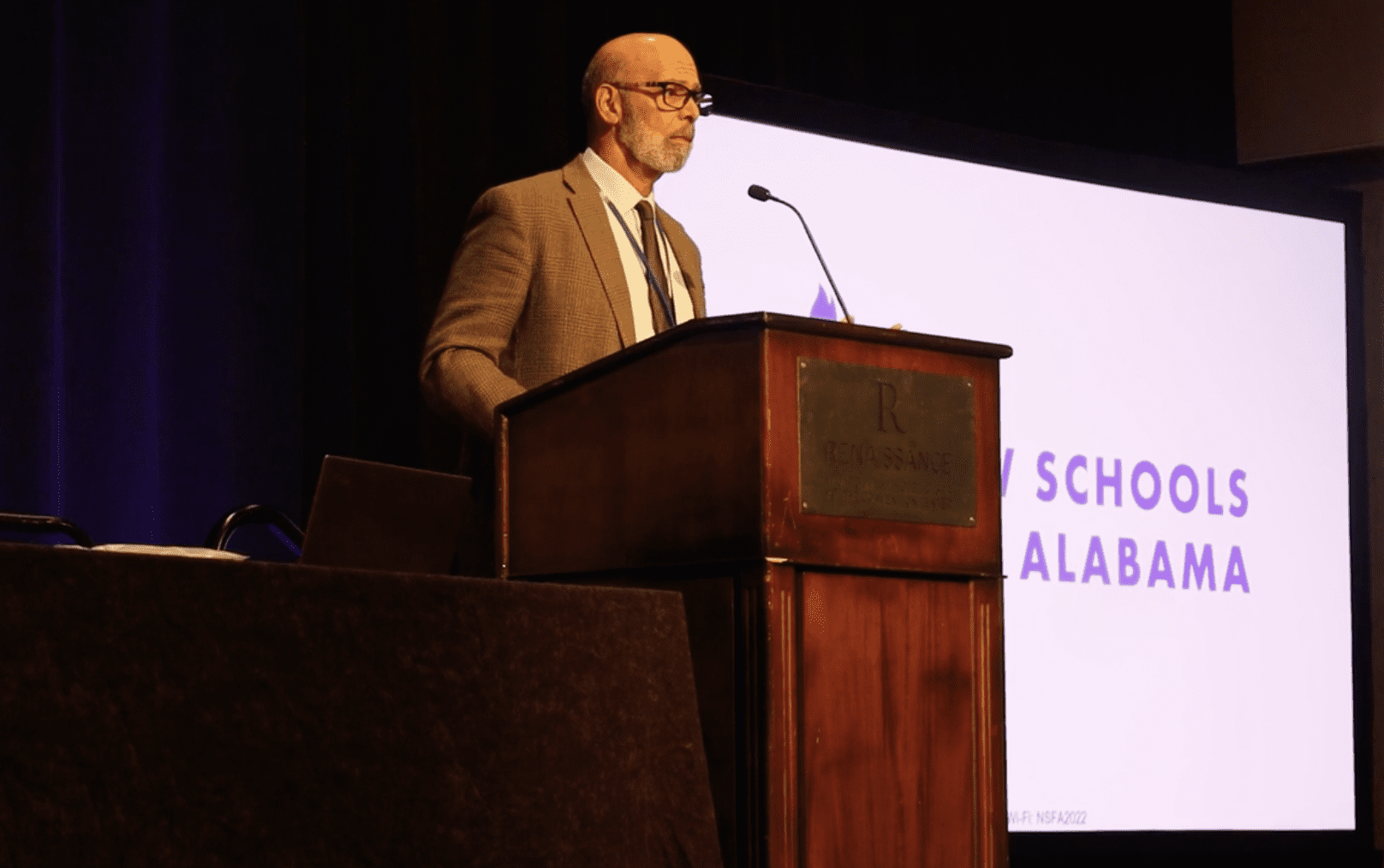INNOVATE
Inspiring Transformative Change in K-12 Education

Part of the 2022 New Schools for Alabama Conference explored how to redefine the K-12 education system in the United States so students of color are not at a disadvantage when seeking a college degree upon graduation from high school. Dr. Michael Lomax, UNCF president and CEO, related how HBCUs are challenged by many students who lack skills needed to succeed in college due to systemic K-12 issues faced by Black students.
In a powerful keynote address, UNCF’s president and CEO, Dr. Michael L. Lomax, underscored the critical need to transform outcomes in K-12 education to reshape the destiny of HBCUs. His speech resonated with a call to action, emphasizing that the future of HBCUs is intricately linked to the transformation of the educational landscape.
“We cannot change outcomes at HBCUs until we change outcomes in K-12 education,” Lomax declared, setting the tone for a renewed era of opportunities for generations to come. He highlighted a remarkable shift, noting that African Americans, who once left the South due to a perceived lack of opportunity, are now returning, and Alabama stands at the forefront of this trend.
Addressing the persistent inequities in Alabama’s educational system, Lomax announced UNCF’s commitment to collaborate with Alabama HBCUs and charter schools. The objective is clear—create new and limitless opportunities for students whose futures are inextricably tied to the quality of education they receive.
Reflecting on the historical significance of HBCUs, Lomax shared a compelling narrative. After the Civil War, Black and White missionaries united in Alabama to build schools in Black communities. These institutions not only provided primary and secondary education but also became the bedrock for training Black teachers. HBCUs played a pivotal role in breaking the cycle of non-education, with graduates making a lasting impact.

Dr. Michael Lomax, UNCF president and CEO, delivers the keynote address to the 2022 New Schools for Alabama Conference.
Lomax shed light on an extraordinary education initiative of the 20th century—the brainchild of Booker T. Washington and Jewish philanthropist Julius Rosenwald. Together, they addressed Black illiteracy by establishing 5,000 one-room schoolhouses across the South. Lomax urged the charter school community to learn from this model, emphasizing the importance of community engagement and ownership.
“We don’t have to do this the way it’s been done before. We don’t have to do what other cities have done,” Lomax asserted.
He called for a unified voice in advocating for community needs, urging a unique approach deeply embedded in collaboration with institutions connected to the community. Highlighting the partnership potential, he emphasized that charter schools need HBCUs, and HBCUs need charter schools. The collaboration extends to developing K-12 schools on HBCU campuses, fostering college-ready students through early college admission, and addressing the critical shortage of Black teachers—a pivotal initiative for community empowerment. Lomax stressed the importance of equipping communities with educators who understand their unique challenges and can serve as role models, contributing to the broader goal of creating a positive and impactful educational environment.
As the keynote concluded, Lomax expressed UNCF’s eagerness for collaboration, envisioning a new era of education, innovation and opportunity. The movement is fueled by determination—to address inequities, eliminate disparities and provide the education that every child deserves for success in the next generation.
Lomax’s speech set the stage for a pivotal session at the NSFA Conference, where UNCF and college and university leaders engaged in profound discussions on the path for a redefined K-12 education system. Panelists included Lomax, Dr. Gregory Vincent (Talladega College president), Dr. Maria Lumpkin (Stillman College vice president of strategic initiatives and chief transformation director), Bobbie Knight (Miles College president) and Dr. Ken Tucker (University of West Alabama president). The session delved into the issues facing K-12 education and explored solutions.
Lomax provided context to challenges faced by HBCUs, seeking insights into the real issues affecting students entering higher education. Vincent shared perspectives on overcoming challenges within his administration, highlighting the complexities and potential roadblocks. Tucker shared a unique perspective implementing a charter school on a college campus, offering practical insights into addressing challenges. Knight engaged in a visionary exercise, contemplating unconstrained solutions to the hurdles faced by young leaders.
Through innovative efforts being undertaken by UNCF to foster real change in the K-12 landscape, this conference became a launchpad for a new era in education—a collaborative and inclusive era that recognizes the potential of every student.
